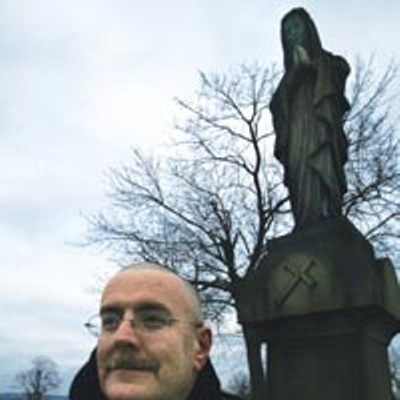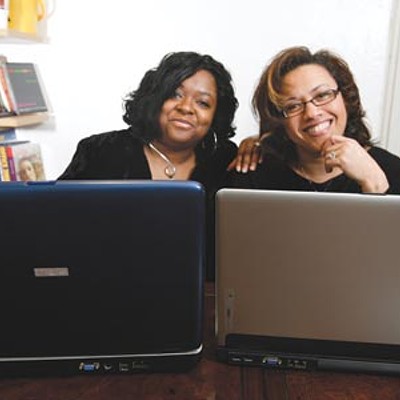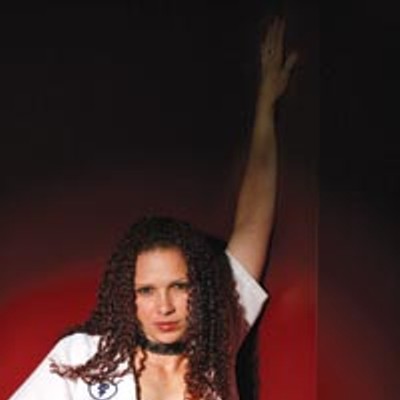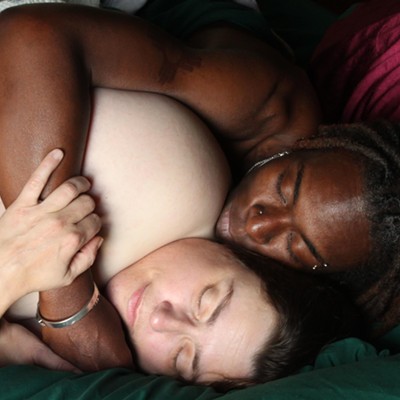A lot of "healthy" and "natural" products and services nowadays can be pretty expensive, yet your workshops are relatively inexpensive. How do you pull that off?
Wolf: They just make it expensive to be able to feel good. Most people can't afford to go to a day spa. Our goal is to keep it as inexpensive as possible. We're not in here trying to be the next Avon conglomerate. We definitely want to expand and be able to increase the use of natural products, but our goal is to become self-sufficient. We gear towards women because women have the inside track to men to get them to use natural products.
Tyson: People come over to help with whatever needs to be done. A lot of times money will be spent just on the production. Anyone who helps us will get free products. It's like a barter system, like how we used to do things. The whole thing is about community. Keisha and I, we help each other. She'll come over and help me cook things and I'll help her make jewelry, so we all benefit.
What can a woman expect from your spas and workshops?
Tyson: We give women better knowledge of natural products like shea butter and sea-salt scrubs. Pampering involves how you treat your body inside and out: the foods you eat, things you put in your hair or on your skin. While they're there they'll have a relaxated experience. Most women spend most of their time catering to everyone else -- their families or their kids -- so that's what the workshops are about.
You stress that black people can't receive optimal healthcare from hospitals because Western medical health standards are created from the blood chemistry of white people. Why is that important?
Wolf: It's really a matter of life and death. If your normal hemoglobin count is not the average count and you have some kind of blood disorder -- I hope to God they know what my normal count is -- but if they're not using that you can't expect that you're gonna get optimal care, and that's across the board with standards of health, school, family living. As far as black people, we have a milk-drinking, beef-eating culture in America. It's like the cow is No. 1. Our bodies are not made the same way to process lactose the way white people can. Our skin naturally makes vitamin D just by exposure to sunlight. If we know that then maybe we don't need to drink vitamin D milk.
Race-specific remedies and diseases are a controversial medical debate that beckons toward the detrimental early phrenology and syphilis experiments done on blacks. But you posit that race-based remedies and diseases have validity?
Wolf: There are biological differences, but not based on "better than" or "less than" or inferiority. Light is a nutrient, and if you have dark skin, that means you have more melanin; you just have to acknowledge that, because it has to do with the ultimate health of that group or race of people. Historically the black community hasn't had the opportunity to be directors of their own healthcare system. You have to be able to distinguish and diversify the way in which you care for people.
So how do you carry out a revolution in the medical industry? Do you completely gut the hospitals as we know them?
Tyson: I don't think that's the way to go about it. Just teaching people to heal themselves -- that's what we used to do before there were hospitals or a medical industry. You have to know your body and how your body responds to what you put into it or onto it.
Wolf: What E-Ma does is not necessarily un-include other people besides black people. The information we offer, anyone can use it. But some'll decide that shea butter is not the best thing for their skin. For black people as descendents of slaves from the west coast of Africa, that's what West Africans use.














